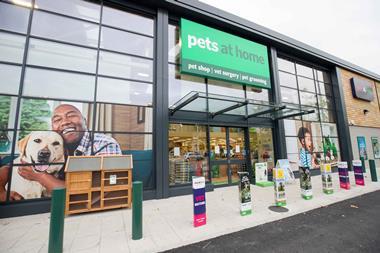In an ever-evolving market, the Retail Trust’s Chris Brook-Carter looks at the new responsibilities leaders have today when it comes to the wellbeing of their workforce
We’ve all faced unexpected challenges in recent years, from the pandemic to the cost-of-living crisis and beyond.
Within the retail industry alone, catering to customers’ rapidly changing needs while grappling with some of the unpredictable challenges facing the sector has placed new and significant demands on businesses of all shapes and sizes.
Pressures and priorities are changing
From disruptions to supply chains and staffing levels to the ever-evolving relationship between ecommerce and bricks-and-mortar retail, businesses are constantly having to adapt and evolve to survive an increasingly competitive landscape.
And the upheaval of recent years hasn’t just impacted consumer behaviour; it’s reshaped employee expectations too.
“The high cost of living and worsening aggression towards staff are having an undeniable impact on people’s mental health”
Prioritising wellbeing has rightly come to the fore and made important new demands on employers’ people strategies coming out of the pandemic.
Right now, the retailers and retail workers we speak to every day tell us that the high cost of living and worsening aggression towards staff are having an undeniable impact on people’s mental health.
Understandably, this also makes retaining retail staff much more challenging.
Leaders have new responsibilities
In this new climate, the right kind of leadership demands much more than strategic thinking to deal with business pressures; it calls for empathy, understanding and actionable support for employees.
Leaders now have a responsibility to proactively manage and protect their people’s wellbeing, rather than providing reactive measures.
Because whether it’s about using data to better understand and respond to how employees are feeling or taking actionable steps to help support them through the higher cost-of-living and in-store abuse, the best retail employers already understand that their future success isn’t solely reliant on their business’ financial performance. It’s also driven by the wellness and morale of their people as the two go hand-in-hand.
In fact, retailers we’re speaking to tell us that a change of just 1% in terms of staff turnover can cost or save them £150,000 a year, so there’s a huge financial benefit to investing in staff retention.
“Leaders now have a responsibility to proactively manage and protect their people’s wellbeing, rather than providing reactive measures”
This is why, in London this week, we’re bringing more than 100 businesses together from across the sector for the Retail Trust’s Leaders’ Summit.
With some of the sector’s biggest employers in attendance, such as Next, Primark and WHSmith, we will explore the issues currently facing their staff and leaders, so we can really understand what we need to do to create happier and healthier workplaces for the benefit of our people and the industry as a whole.
New Look chief executive Helen Connolly is one of the retail leaders speaking at our event, and I’ll be asking her what the last few years have taught her about leading a retail chain and managing workplace wellbeing, as well as New Look’s vision for the future.
We’ll also be hearing from experts such as the director of HR change and colleague experience at Sainsbury’s, Hannah Sargeant, and Next’s head of HR and the chair of its LGBT+ employee network, Andrew Jurd.
And we’ll be debating everything from the future of the four-day week in retail to what support we should be putting in place for anyone going through a crisis.
Redefining retail’s approach to leadership and wellbeing
We’re running this event because, as challenging and daunting as the issues facing the industry may be, I believe they give us the impetus we need to redefine our industry’s approach to leadership and wellbeing, with spaces where our employees feel safe discussing the issues that are impacting their mental health and where the support they need is readily available.
Our mission at the Retail Trust remains focused on creating these environments to ensure our workforce, the very heart and soul of our industry, feels valued, listened to and supported.
For those looking to be part of the conversation on how we can make that happen, I urge you to join us at our Leaders’ Summit event on November 2 or to get in touch with the Retail Trust directly.
Together, let’s work towards a more hopeful, healthier and happier future for everyone working in retail.
Visit retailtrust.org.uk/leaders-summit to register for the Retail Trust’s Leaders’ Summit on 2 November.

Chris Brook-Carter is chief executive of the Retail Trust





























